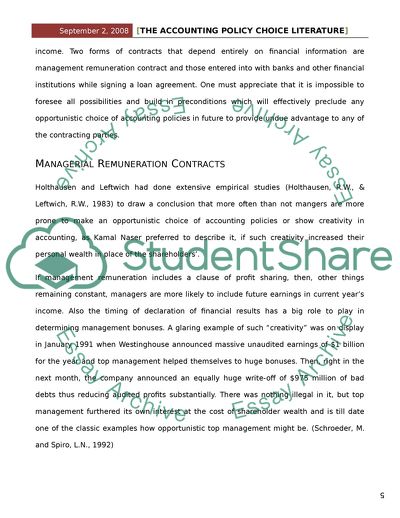Cite this document
(The Accounting Policy Essay Example | Topics and Well Written Essays - 1500 words, n.d.)
The Accounting Policy Essay Example | Topics and Well Written Essays - 1500 words. https://studentshare.org/finance-accounting/1716018-the-accounting-policy-choice-literature
The Accounting Policy Essay Example | Topics and Well Written Essays - 1500 words. https://studentshare.org/finance-accounting/1716018-the-accounting-policy-choice-literature
(The Accounting Policy Essay Example | Topics and Well Written Essays - 1500 Words)
The Accounting Policy Essay Example | Topics and Well Written Essays - 1500 Words. https://studentshare.org/finance-accounting/1716018-the-accounting-policy-choice-literature.
The Accounting Policy Essay Example | Topics and Well Written Essays - 1500 Words. https://studentshare.org/finance-accounting/1716018-the-accounting-policy-choice-literature.
“The Accounting Policy Essay Example | Topics and Well Written Essays - 1500 Words”. https://studentshare.org/finance-accounting/1716018-the-accounting-policy-choice-literature.


